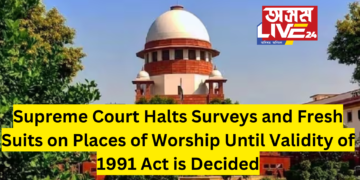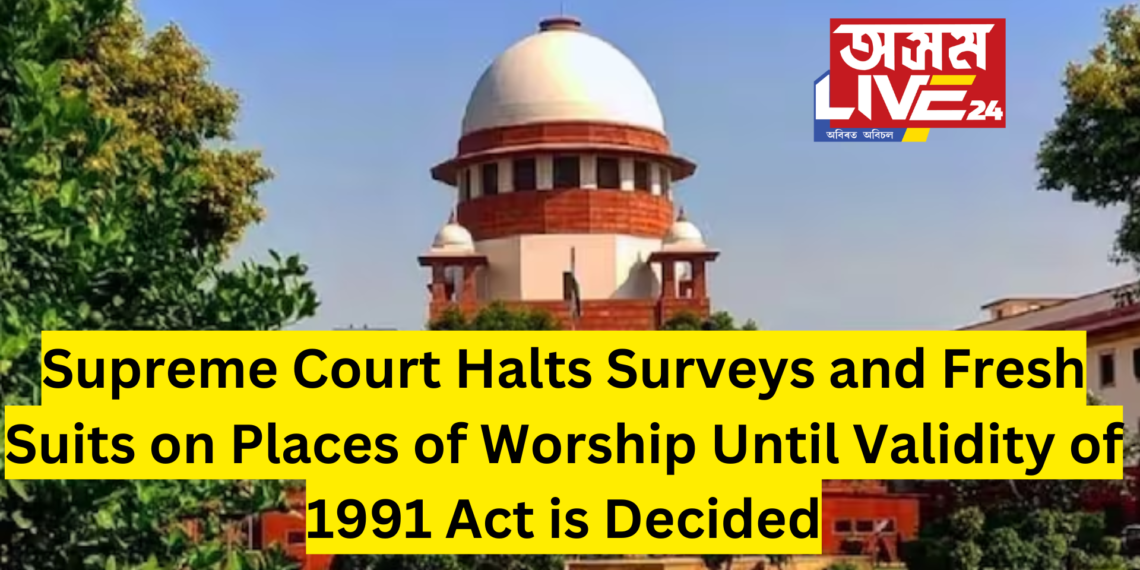In a significant ruling on Thursday, the Supreme Court directed that no surveys of places of worship be conducted and no new suits be filed until the constitutionality of the Places of Worship (Special Provisions) Act, 1991 is determined. The court also instructed all lower courts to refrain from hearing cases related to surveys or passing orders on such matters.
The 1991 Act prohibits the conversion of any place of worship and mandates the preservation of the religious character of any place of worship as it existed on August 15, 1947. The Supreme Court’s directive came during the hearing of petitions challenging the constitutionality of the law. The court has asked the Centre to file a response within four weeks.
The matter was taken up by a Bench led by Chief Justice of India Sanjiv Khanna, along with Justices PV Sanjay Kumar and KV Viswanathan.
Several Hindu organizations and individuals, who claim that some mosques were built over ancient temples, have filed petitions challenging key provisions of the Act. These include Sections 2, 3, and 4, which prevent the alteration of religious sites and lawsuits regarding their status as of 1947.
Petitioners, including religious leaders, politicians, and advocates, argue that the Act violates the constitutional rights of Hindus, Jains, Buddhists, and Sikhs to restore and manage their places of worship. They claim that it infringes upon their rights under Articles 25, 26, and 29 of the Constitution.
The outcome of this case could have a major impact on ongoing legal disputes, including those involving Hindu plaintiffs seeking rights over properties currently housing Muslim mosques, such as the Shahi Jama Masjid in Sambhal, the Gyanvapi Mosque in Varanasi, the Shahi Eidgah Masjid in Mathura, and the Ajmer Dargah in Rajasthan. Muslim parties have contested the validity of these suits, citing the Places of Worship Act.
এনেধৰণৰ অন্যান্য বা-বাতৰিৰ বাবে লাইক কৰক অসম লাইভ ২৪ ৰ ফেচবুক পেজ






















